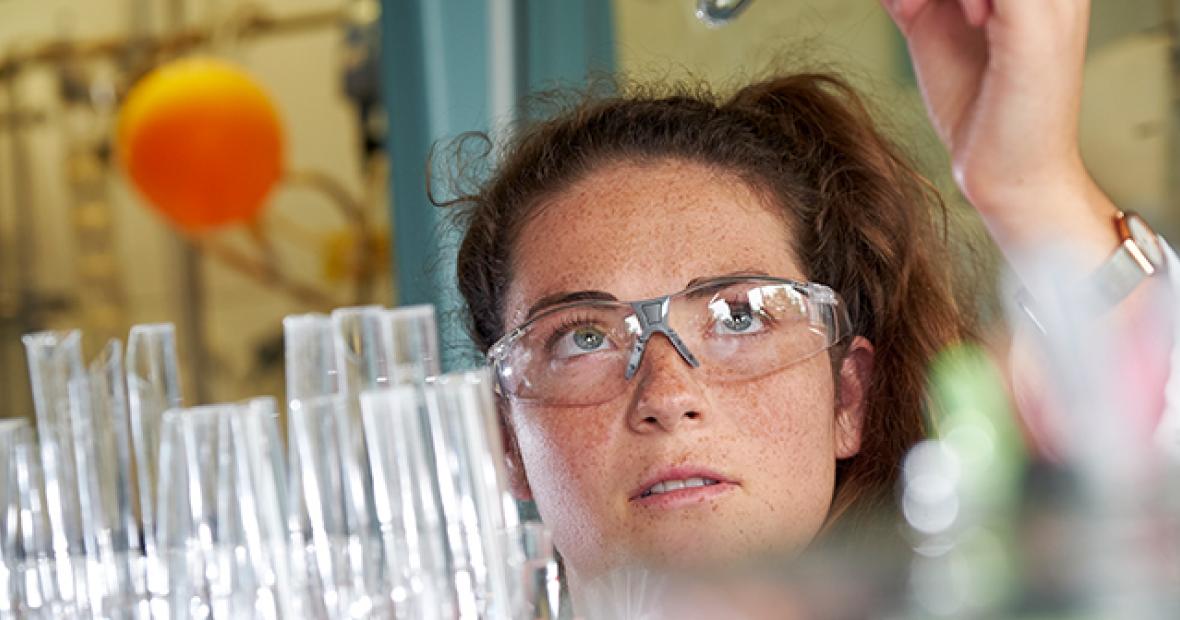Chemistry in Copenhagen
On medicine, lab research, and bidets
Henry Bolster ’18
Lucy Chechik ’18, a chemistry major from Minneapolis, wanted to study abroad and chose DIS (Danish Institute for Study Abroad) Copenhagen because of its focus on medicine.
During fall 2016, Chechik enjoyed getting a chance to interact with female Danish doctors. “My classes were taught by doctors. We got a crash course in anatomy and diagnostics and learned a lot about the health care systems in Denmark, Sweden, and Estonia,” she says.
She liked spending time with her peers and host family and relished traveling around Europe, but still, she felt like she wanted something more — a chance to really live and work in a place rather than just visit it as a student.
One thing she’d hoped to do that fall was a research internship, but she couldn’t work it into her schedule.
Chechik had gotten a taste of research during the summer of 2016 when she completed a Mentored Advanced Project with Mark Levandoski, professor of chemistry. She studied neuronal nicotinic acetylcholine receptors (nAChRs) — proteins in the brain that are implicated in a variety of diseases including schizophrenia and Alzheimer’s.
Since 2014, Levandoski has been collaborating with Bente Frølund, principal investigator in a lab at the University of Copenhagen’s Department of Drug Design and Pharmacology. Her lab also does work with nAChRs. In fact, some of the compounds synthesized in her lab are sent to Grinnell and used for testing purposes in Levandoski’s lab.
After Chechik’s fall semester abroad, she continued working in Levandoski’s lab. Meanwhile she was determined to go back to Copenhagen.
Levandoski had also hoped that Chechik would work in Frølund’s lab during her semester abroad. The summer of 2017 seemed like the perfect opportunity.
“She did most of the work to get it arranged,” Levandoski says.
After securing the summer position, Chechik applied for internship funding through the Center for Careers, Life, and Service (CLS). The CLS awarded Chechik funding through the chemistry department. Gifts from Shenda Baker ’85, a chemistry graduate, and Mark and Barbara Maisel, parents of Brenton Maisel ’11, made Chechik's global research experience possible, for which she is “incredibly grateful.”
Although Chechik admits she sometimes felt overwhelmed by her responsibilities in the lab, she soon got the hang of it. “I’ve gotten a lot more confident in what I’m doing,” she says. “I like the hands-on nature of this sort of research. It’s shown me that I want research to be a part of my medical education.”
Chechik also enjoyed working closely with students from many different nations.
“Before coming to Copenhagen, I didn’t have a tangible sense of this big, international scientific community. It’s cool to realize that yeah, we’re in this lab, but the international community is working on this.”
Chechik also learned something about the value of talking with people from other countries, even if it’s not about anything important — like bidets.
“Chinese students are blown away by it,” she says with a laugh. “They tell us stories of their first experience with bidets, and apparently, every Italian home has a bidet. I think that even if we’re talking about something as silly as bidets, we’re starting to understand other cultures and other people. That’s the first step in international relations.”

